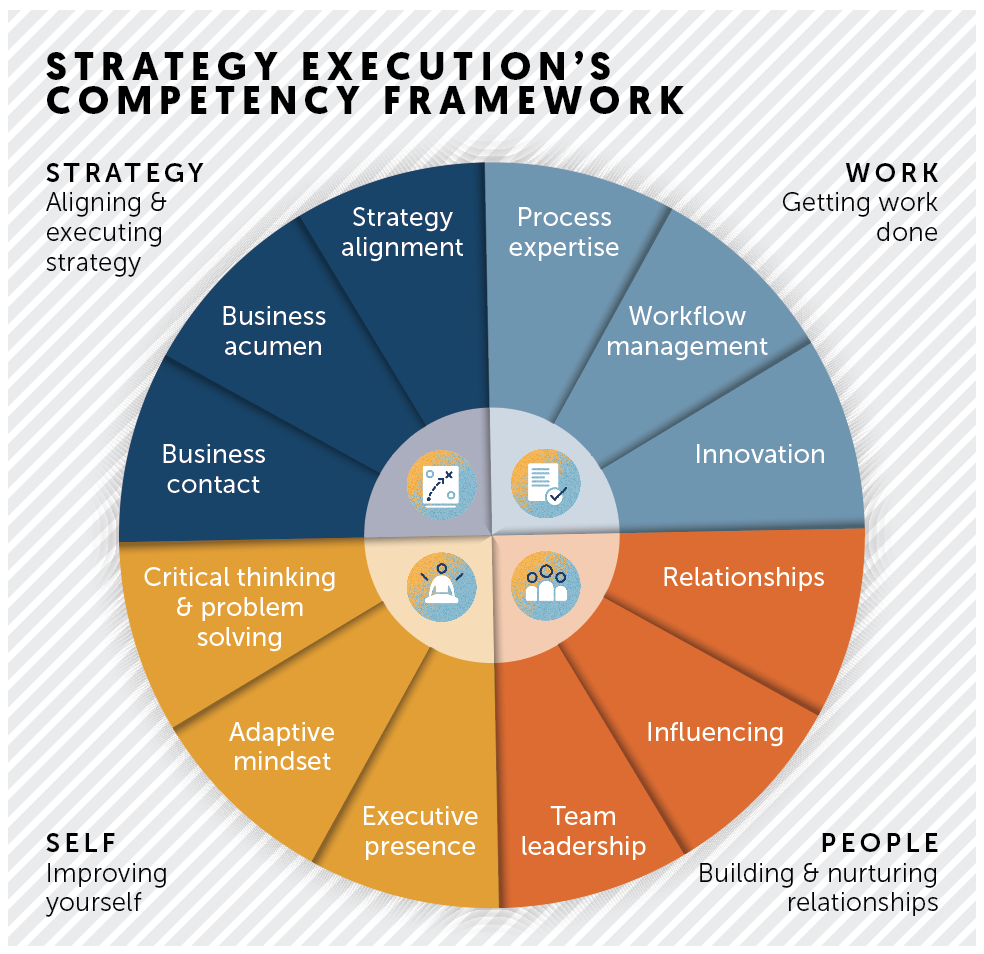It’s time to reconsider our approach to talent and the skills needed to succeed today, says Christoffer Ellehuus.
The world of work is evolving. Powerful trends like globalization, information proliferation and new technologies are creating increasing complexity in markets, whether we work for incumbents or disruptors. Driven by digitization, the way we work is changing too, in ways that profoundly impact what managers and professionals do, and the tools they need to succeed.
In this context, how should leaders and organizations act? Twenty or thirty years ago, the answer to that question was to improve efficiency. The thinking was that we could hone our processes and models, making operations leaner and more efficient, using tools like Six Sigma. But today, those processes are either being digitized, outsourced, or automated. Instead, the focus for leaders has to be on the changing environment and increasing the ability of their organizations to adapt to change.
That means that organizations need to understand and respond to two major dynamics. First, work has changed from being based on operations, to projects. Second, because of that change, we need to rethink our approach to talent, and recognize the new skills and behaviors needed to succeed in a world that is oriented around projects.
A changing balance
The balance of how we work is changing. Research cited by project guru Antonio Nieto-Rodriguez suggests that executives’ time used to be split in a 90:10 ratio between the relatively routine work of ‘running the business’ and ‘changing the business’. That formula has been overturned. Today, we estimate it to be a 70:30 ratio in the other direction, with the bulk of leaders’ time spent on changing their business.
Change can, of course, take any number of forms. It includes developing new products and services, moving into new territories, or responding to competitors and regulatory changes. Whatever the change, it tends to be delivered through discrete, defined initiatives: in other words, projects. In all sectors, across business, government and not-for-profits, organizations are increasingly working with a project-driven workflow. It might not be called ‘project management’ – it’s just ‘work’ – but the shift is unmistakable. The change is global in scale: it’s forecast that project-oriented economic activity could grow 68% over a 14-year period, from US$12trn in 2013 to $20.2trn in 2027 (Project Management Job Growth and Talent Gap 2017-2027, Project Management Institute, 2017). Yet organizations rarely acknowledge this shift.
The costs could be substantial. One McKinsey study of over 5,000 business projects found that 56% delivered less value than expected, and 45% had cost overruns. Some 17% went so badly that they threatened the company’s very survival. If they cannot improve those odds, organizations are playing Russian roulette in their approach to managing projects.
This failure rate also betrays a lack of thinking about the implications of the project-based economy for organizations’ talent strategies. Our research has found that a lack of change management skills is the top reason for project failure, identified by 45%. We looked at firms across the US, Europe and Asia-Pacific and found that 95% of project-based workers are neither certified, nor even called project managers, even though their roles involve managing and delivering projects.
You will find these professionals all over organizations today. It is the sales operations director leading a big change in go-to-market strategy, or the change management consultant in HR leading a large-scale reshaping of the firm’s performance management process. Those project-based professionals may have no interest in pursuing a career in project management, but they need project management techniques to succeed. The Project Management Institute (PMI) has warned that shortages in project management talent and skills could cost employers $208bn over the decade to 2027.
This reflects the widespread view of project management as a niche technical discipline that really only matters for IT and technical work. This has not been helped by project managers who are too often focused on project orthodoxy, opaque terminology and rigid processes, rather than being delivery-focused and responsive to today’s requirements. Yet it is an increasingly unhelpful and outdated view of project management.
Getting work done

A better approach means stopping thinking about the challenges we face today in terms of ‘project management’. Instead, we have to reframe the question as being about how we get work done most effectively. It also means stopping thinking about project management as a technical discipline, and recognizing it instead as being a combination of skills and disciplines that are needed to get work done today. This shift has four major components.
1. Strategy

Alignment and executing on strategy means that the strategy has to be rooted deeply in the organization and understood by all. The business’s aims – its purpose – and the fundamental economics of the organization need to be grasped by everyone, because prioritizing work and eliminating ‘noise’ is an ongoing challenge for us all. Our 2019 survey and report, Emerging Trends in Project-Based Work, found that the biggest challenge in this area, identified by 86%, is selecting the right work to be done – and eliminating work that should not be continued, or even started. Getting this right is impossible without a genuine understanding of the strategy. So is identifying opportunities for innovation, growth and value creation – the second biggest challenge, highlighted by 79%.
Most leaders need to spend more time on building this understanding in their organizations. It is simply not enough for leaders to present the strategy once a year and hope that is an adequate anchor. Forcing change through is unsustainable, so leaders need to bring people with them on the strategy. The critical question is: do leaders and managers often talk to the organization about the underlying purpose and economics of the company, and why it is important?
2. Work

Getting work done demands action in three areas: process expertise, workflow management and innovation. The most urgent area of focus is managing multiple priorities and interrelated workstreams, identified as a challenge by 83% in our research. Doing this effectively demands that the core disciplines of project management be developed in professionals in all parts of organizations, not just IT or digital teams. The core techniques of project management – defining the aim and scope of a project, preventing scope creep over time, managing budgets against cost inflation, staying on course – are relevant to all. Project management is a core muscle to be developed in everyone.
That is increasingly being recognized by major organizations. We are currently working in partnership with BP in Azerbaijan under their social investment program, for example, to develop both strategic leadership skills and the core project management skills of the local workforce: the skill-sets are closely interrelated, and success depends on having both in place across different management levels throughout the organization.
Ask: do leaders of project execution deploy work approaches, including design thinking, to identify opportunities for innovation and problem-solving?
3. People

In our study, the most urgent area of focus for improving how we manage people today is creating the conditions for leading and managing a team in an environment of ambiguity and uncertainty – a challenge identified by 80%. A similar number, 79%, see the challenge of leading through change or transformation as a priority, and the two challenges go hand in hand. With a 70:30 focus on changing the business now the norm, leaders have to create a team environment where people accept a degree of uncertainty and ambiguity, and are able to still move forward and get work done.
That means a major shift is needed in how leaders approach people management, towards nurturing team members and building their capacity to deal with the challenges that the organization faces. It also means moving beyond basic project management to develop portfolio management skills, allowing project leaders to prioritize better as business needs change.
Janus-like, managers face both inwards to their teams and outward: they need to be adept at managing upwards, at influencing and managing through networks, and engaging stakeholders throughout the different phases of projects, from initiation and development through execution and delivery. Despite the importance of the people dimension, it is still too often the case that management positions go to those who are technical experts, but not ‘people people’. This under-valuing of so-called ‘soft’ skills can cost organizations dearly in terms of project success rates.
4. Self

The fourth dimension is that of self. A well-developed ability to manage yourself and to improve your own capacity is immensely valuable. The most urgent areas of focus are to build creative, problem-solving and critical-thinking skills, and to build an adaptive leadership mindset that equips a manager to deal with the ever-changing world.
Organizations need to support this shift. They can help develop different approaches to problem-solving and innovation among project leaders, equipping them to discover solutions to emerging challenges. One global technology company is working to develop adaptive leadership capability throughout the business, realizing that it cannot only be about the top tier: in today’s organizations, everyone is a leader and needs to build their adaptability muscle.
Personal resilience is also critical. Complexity and change create circumstances that continually stretch and challenge us as leaders. Being able to build alignment with the strategy and drive execution in the face of ambiguity and uncertainty is essential.
Adapting to change
The projectification of work has rapidly shifted the nature of work for most professionals: away from running routine operations and decisively towards leading projects. In this new world, executives have to answer three critical questions. Does your organization have the capabilities to thrive in the project-based economy? Do professionals across your organization have the right adaptive mindset to execute on critical projects? And do your project leaders have adequate business skills for prioritizing among competing workstreams and aligning with shifting business priorities?
In every sector, an adaptive mindset based on the core techniques and skills of project management is now essential. The days where project management was mainly a technical skillset deep in the IT function have long gone.
— Christoffer Ellehuus is chief executive of Strategy Execution. Illustrations by Adam Quest. Discover Duke CE’s Adaptive Strategic Execution Program developed in partnership with Strategy Execution. An adapted version of this article appeared on the Dialogue Review website.



